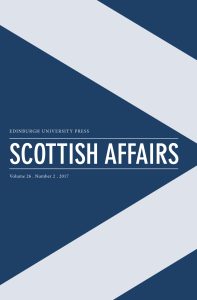
By Ben Clements.
My Scottish Affairs research looks in detail at recent survey data on religious decline and secularisation in Scotland, using Scottish Social Attitudes and British Social Attitudes surveys to analyse affiliation and attendance in Scotland across 1992-2014. Historically, Scotland was considered to be a particularly religious nation within Great Britain, partly because of its Presbyterian traditions., Scotland has become a much more secular country over time, as has been made clear in major scholarly contributions by Steve Bruce, Callum Brown and Clive Field. Several noteworthy findings emerged from my research, which I summarise here.
 Levels of religious affiliation and attendance – highlighting increased secularisation
Levels of religious affiliation and attendance – highlighting increased secularisation
- There has been a clear decrease in the level of Christian affiliation across recent decades mainly due to a substantial decline in identification as Church of Scotland. There has also been a steady rise in ‘religious nones’ – those who do not have any form of religious affiliation. These ‘nones’ overtook the Church of Scotland as the most populous category amongst Scottish adults in the early 2000s Moreover, the proportion saying that they did not have a religious upbringing has increased to around a fifth of adults.
- To use Field’s term, around three-fifths to two-thirds of Scottish adults can now be classified as ‘habitual absentees’ – they do not attend religious services except for special occasions such as those marking the traditional ‘rites of passage’ (births, marriages and deaths). The proportion attending at all, whether regularly or irregularly, has declined from around half to less than two-fifths. Given the well-established caveats in the wider scholarly literature about measuring religious attendance through surveys, the proportion of ‘habitual absentees’ is no doubt higher.
- Scotland and England seem to be relatively similar in terms of key indicators of secularity. That is, they show similar trends in terms of the increasing proportions who say they do not have a religious affiliation, who say they were raised in a non-religious environment, and who do not attend religious services.
- There are clear patterns in the socio-demographic basis of affiliation and attendance in Scotland. Church of Scotland identifiers are heavily skewed towards the older age groups while having no religious affiliation dominates the younger age groups. Younger people were also more likely to say that they did have a religious upbringing. The age gap was present, though much less pronounced, in relation to attending services. Women were more likely than to men to identify with a religion and to attend religious worship. More finely-grained analysis supports Bruce’s point about the role of older women as a key ‘carrier of religion’ in Scottish society. Relative to men in the same age range, women aged between 45-74 were generally more likely to be affiliated to a religious faith and to attend services (and go on a more regular basis). Interestingly, these differences were not evident for men and women aged 75 and over.
Overall, the findings show that the secularisation of Scottish society has deepened in recent years. Given the lower levels of religious affiliation and attendance amongst those in the youngest age groups, and in the absence of clear life-cycle effects promoting the adoption of religious identity and involvement in adulthood, Scottish society seems set on a course of further secularisation. The ‘haemorrhage of faith’ in Scottish society identified by Brown in the second half of the 20th-century – further confirmed by Field – continues into the 21st-century.
Ben Clements is a Lecturer in Politics at the University of Leicester. Find out more about his research and interests here. His article “Religious Change and Secularisation in Scotland: An Analysis of Affiliation and Attendance” appears in Scottish Affairs, Volume 26, Issue 2 (May 2017). To know when issues are published, sign up for Scottish Affairs content alerts.






Would be very interesting to understand what the impact of this decline has been on Scottish society, in terms of well-being, mental health, etc. and how that compares to England..?